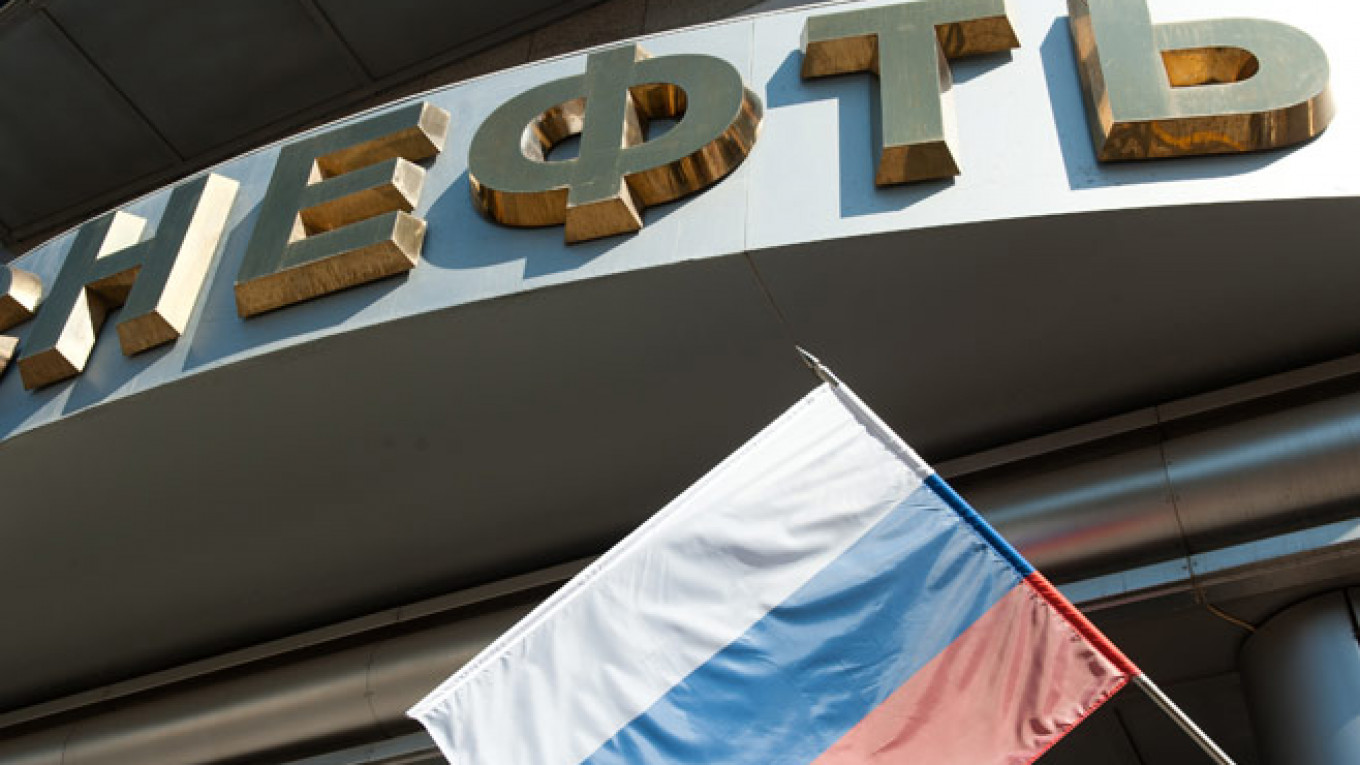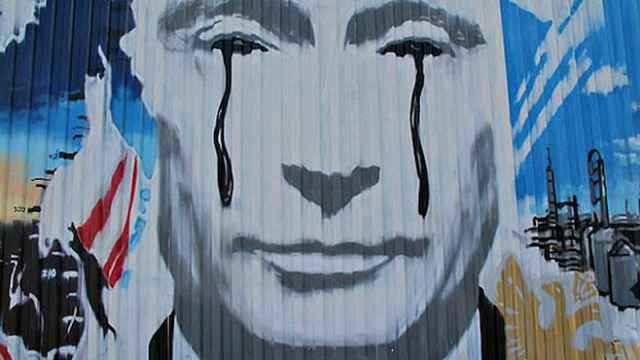The Russian government has backed away from the idea of increasing the mineral extraction tax on the oil industry — for now at least — but the threat remains of another blow to an industry already burdened by excessive regulation.
As the state budget is in such dire straits and the oil industry is the most profitable sector of the Russian economy, the proposal made last month by the Finance Ministry to impose new taxes on that sector should have come as no surprise.
According to recent RBC-500 ratings, oil companies generated 97.7 percent of all the revenue earned by the 500 largest Russian companies. So who could be a better candidate to share out the wealth if not the oil industry, especially as other sectors of the economy are faring poorly?
The manufacturing sector has suffered the equivalent of an annual decline of 4 percent for the past few months. Construction and retail did even worse, falling by 9 to 10 percent. Exports of goods and services decreased by 40 percent from August 2014 to August this year.
The only recipe to save an ailing economy close to rock bottom is to strengthen businesses that are growing and still bringing in profits, and leave the rest to either sink or swim.
The alternative scenario, the Bolshevik maxim "Grab and Share" — what the Finance Ministry is now proposing for the oil industry — only prolongs economic misery.
Officials claim that the extra revenues from the mineral extraction tax (MET) will bring the government up to two trillion rubles in 2015-16. Moreover, the proposal calculates oil exporters' earnings at the extremely unfair exchange rate of 40 rubles to a dollar.
After hearing the arguments of the oil companies, Medvedev decided against making the new tax increases, but Cabinet members made it clear they were looking at other ways of levying taxes on the oil industry.
The tax regulations imposed on the Russian oil industry are a cause of acute instability, having changed 22 times over the last three years. This especially hurts projects that will turn a profit only 15 or 25 years down the line. The uncertainty explains foreign investors' coolness toward Russian projects and the difficulties the industry has in attracting financing for long-term growth.
An executive at a large Asian investment bank told me, "Banks can't lend $2 billion for 25 years — they will not turn a profit earlier — just on the promises of one man who is offering unprecedented tax breaks for an obvious money-losing venture. What happens if Putin is no longer president in 25 years or changes his mind about the project and takes the tax incentives away?"
So, is the government really under-taxing the oilmen? The two main taxes levied on the oil industry — the MET and export tariff — are pegged to the oil price. If oil is sold at $100 a barrel, a company pays a total of $68.9 in the two taxes. If the price is $50 a barrel, the tax liability is only $28.2. After subtracting all other payments and costs, the company is left with $6.6 dollars, when oil is at $100 a barrel and $5.5 dollars, when the price is $50.
In other words, the government is already collecting all the extra revenue that the Russian oil industry receives from a rise in global oil prices. But now the Finance Ministry wants to deprive the industry of even more revenues.
Oil industry experts have warned that the government is "killing the goose that lays the golden egg." And this is on top of low oil prices, which are likely to remain low for at least 10 years and have already had a negative effect on the oil industry.
Russian oil companies have already cut their investment programs at an alarming level — by around 30 percent — and are continuing to do so. The first target was new field development projects. There are also cases of existing oil fields resorting to the Soviet-era practice of maximizing production at the expense of quality — companies report higher outputs by virtue of having extracted easily accessible deposits and ignored more challenging ones. This means significant oil deposits will remain in the ground, as has already happened in the vast Samotlor Field in Western Siberia, whose legendary reserves are now unlikely to be extracted.
The fact that overall production levels are around the same as before is disguising a crisis. Oil refinery modernization programs are being rolled back or shut down. Several companies have laid off personnel.
Oil generals are sounding their alarm: they are writing to Putin and negotiating with the prime minister. They've calculated that the Finance Ministry proposals, if approved, will reduce oil output by 100 million tons in the next three years, thereby denying the federal budget all the tax receipts it hoped to receive through the tax hike. One million people employed in oil and related industries risk losing their jobs. Gasoline prices will go up.
This is the context in which the Finance Ministry is proposing new tax increases. Energy Minister Alexander Novak has made an entirely plausible prediction that, if approved, they will cut the investment in the energy sector by half.
So far, Dmitry Medvedev has spared the industry but as the government's financial woes deepen, it is all too likely to revert to the Bolshevik "Grab and Share" approach.
Mikhail Krutikhin is a partner in the independent RusEnergy consulting agency. This comment originally appeared on Carnegie's Eurasia Outlook blog.
See also on the Eurasia Outlook blog:
Lukashenko's Western Flirtation
Chronicling a Catastrophe: The Nobel Prize and Svetlana AlexievichA Message from The Moscow Times:
Dear readers,
We are facing unprecedented challenges. Russia's Prosecutor General's Office has designated The Moscow Times as an "undesirable" organization, criminalizing our work and putting our staff at risk of prosecution. This follows our earlier unjust labeling as a "foreign agent."
These actions are direct attempts to silence independent journalism in Russia. The authorities claim our work "discredits the decisions of the Russian leadership." We see things differently: we strive to provide accurate, unbiased reporting on Russia.
We, the journalists of The Moscow Times, refuse to be silenced. But to continue our work, we need your help.
Your support, no matter how small, makes a world of difference. If you can, please support us monthly starting from just $2. It's quick to set up, and every contribution makes a significant impact.
By supporting The Moscow Times, you're defending open, independent journalism in the face of repression. Thank you for standing with us.
Remind me later.






